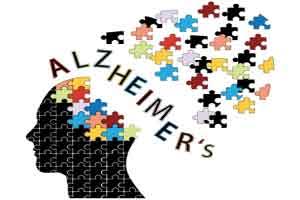- Home
- Editorial
- News
- Practice Guidelines
- Anesthesiology Guidelines
- Cancer Guidelines
- Cardiac Sciences Guidelines
- Critical Care Guidelines
- Dentistry Guidelines
- Dermatology Guidelines
- Diabetes and Endo Guidelines
- Diagnostics Guidelines
- ENT Guidelines
- Featured Practice Guidelines
- Gastroenterology Guidelines
- Geriatrics Guidelines
- Medicine Guidelines
- Nephrology Guidelines
- Neurosciences Guidelines
- Obs and Gynae Guidelines
- Ophthalmology Guidelines
- Orthopaedics Guidelines
- Paediatrics Guidelines
- Psychiatry Guidelines
- Pulmonology Guidelines
- Radiology Guidelines
- Surgery Guidelines
- Urology Guidelines
Long term hormone therapy in postmenopausal women increases Alzheimer’s risk

Long term use of hormone therapy linked to increased Alzheimer’s risk. Although the absolute risk is small, women should be informed, say, researchers
Long term use of oral hormone therapy is associated with a small increased risk of Alzheimer’s disease in postmenopausal women, finds a study carried out in Finland and published by The BMJ today.
The researchers stress that the absolute risk is small (9-18 extra cases per 10,000 women per year) and the age at which hormone therapy is started has no bearing on future risk. But they say women should be informed of the potential risk associated with prolonged use.
Hormone therapy is used to relieve menopausal symptoms such as hot flushes and night sweats. Different types of treatments are available - for example, tablets containing oestrogen only or a combination of oestrogen and progestogen, as well as ‘transdermal’ treatments, such as patches, gels, and creams.
In Finland, 90% of hormone therapy is given orally.
Several studies have suggested that postmenopausal hormone therapy could protect against Alzheimer’s disease, but a recent clinical trial failed to confirm this benefit, and in fact implied an increased risk of overall dementia in hormone therapy users.
So to better understand this possible association, researchers led by Tomi Mikkola at the University of Helsinki set out to compare use of hormone therapy in postmenopausal women with and without a diagnosis for Alzheimer’s disease.
Using national population and drug registers, they compared data on hormone therapy use for 84,739 postmenopausal women diagnosed with Alzheimer’s disease between 1999 and 2013 (cases) with the same number of postmenopausal women without a diagnosis (controls).
In 83,688 (98.8%) women, Alzheimer’s disease diagnosis was made at age 60 or older, and 47,239 (55.7%) women were over 80 when diagnosed. And 11,805 (74.9%) women had been taking hormone therapy longer than 10 years.
Overall, the use of oral hormone therapy was associated with a 9-17% increased risk for Alzheimer’s disease, whereas use of vaginal hormone therapy showed no such risk.
In absolute terms, this means that nine to 18 additional cases of Alzheimer’s disease per year will be detected in 10,000 women between 70 to 80 years of age, especially in those who had used hormone therapy for over 10 years, explain the authors.
The risk did not differ significantly between users of oestrogen only tablets and users of combined oestrogen-progestogen tablets, and the higher risk was not related to different progestogens.
Age at which hormone therapy was started did not appear to affect future risk for the condition. However, in women who were younger than 60 when they started taking hormone therapy, the increased risk was associated with exposure for over 10 years.
This is an observational study and, as such, can’t establish cause, and the researchers say they cannot rule out the possibility that other unmeasured factors may have affected the results.
Nevertheless, they point out that this is one of the largest studies on the association between hormone therapy use and risk of Alzheimer’s disease and uses data from a reliable nationwide register.
As such, they say: “Long term use of systemic hormone therapy might be accompanied with overall increased risk for Alzheimer’s disease, which is not related to the type of progestogen or the age at initiation. By contrast, use of vaginal estradiol shows no such risk.”
Even though the absolute risk for Alzheimer’s disease is small, “our data should be implemented into information for present and future users of hormone therapy for the condition,” they add.
In a linked editorial, Dr JoAnn Manson of Harvard Medical School and Brigham and
Women’s Hospital, Boston, Massachusetts, and Dr Pauline Maki of the University of Illinois at Chicago, query whether the findings should change the view that the health pros of hormone therapy outweigh the cons for younger postmenopausal women seeking symptom management.
They conclude, taken as a whole, the available evidence does not suggest that younger women should be concerned about using hormone therapy in the short term.
“Considering the totality of the evidence, these findings should not influence clinical decision making about the use of hormone therapy for relatively short term symptom management,” they write.
“For women in early menopause with bothersome vasomotor symptoms, no compelling evidence exists of cognitive concern from randomized trials and instead there is reassurance about cognitive safety.”
But they caution: “Concerns about longer-term use of estrogen plus progestin on cognitive outcomes remain.”
For more details click on the link: http://www.bmj.com/content/

Disclaimer: This site is primarily intended for healthcare professionals. Any content/information on this website does not replace the advice of medical and/or health professionals and should not be construed as medical/diagnostic advice/endorsement or prescription. Use of this site is subject to our terms of use, privacy policy, advertisement policy. © 2020 Minerva Medical Treatment Pvt Ltd